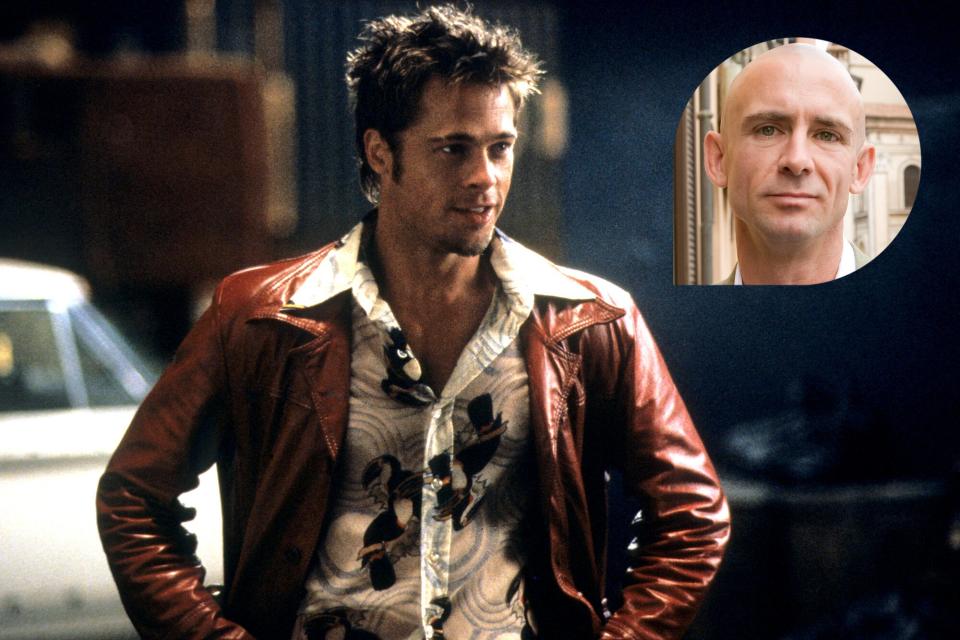Fight Club author Chuck Palahniuk weighs in on the film's censored Chinese ending

- Oops!Something went wrong.Please try again later.
- Oops!Something went wrong.Please try again later.
- Oops!Something went wrong.Please try again later.
There's one person who doesn't seem too fussed by the new censored Chinese ending to the 1999 film Fight Club — and that's author Chuck Palahniuk.
Palahniuk wrote the 1996 novel that inspired the David Fincher cult classic, which in turn starred Brad Pitt and Edward Norton and was recently released on Tencent Video, China's largest video streamer. But while the altered ending is drastically different — a title card reveals that authorities foil the anarchic plot to blow up banking and credit card buildings — Palahniuk told TMZ on Wednesday that the less pyrotechnic Chinese ending actually hews closer to his original novel.
"The irony is that the way the Chinese have changed it is they've aligned the ending almost exactly with the ending of the book, as opposed to Fincher's ending, which was the more spectacular visual ending," he said. "So in a way, the Chinese brought the movie back to the book a little bit."

Everett Collection; Inset: Leonardo Cendamo/Getty Images Brad Pitt in 'Fight Club' (inset: Chuck Palahniuk)
In the original film, Norton's nameless narrator kills off his alter ego, Tyler Durden (Pitt), before watching a skyline explode, seemingly dealing a devastating blow to consumerist culture by erasing banking and debt records.
The Tencent version eliminates that ending and replaces it with a freeze-frame and a title card that reads, "The police rapidly figured out the whole plan and arrested all criminals, successfully preventing the bomb from exploding. After the trial, Tyler was sent to lunatic asylum receiving psychological treatment. He was discharged from the hospital in 2012."
EW has reached out to representatives for Fincher, Pitt, and Norton for comment on the film's Chinese ending.
FIGHT CLUB’s ending for the Chinese release (on Tencent Video) was changed to this and now I’m waiting for someone to fanfic a sequel based on this censored ending. pic.twitter.com/zYB0bY3Dlp
— Courtney Howard @ #Sundance (@Lulamaybelle) January 24, 2022
In Palahniuk's novel, the plot also fails — not because of police intervention, but because the bomb malfunctions. The narrator then shoots himself and wakes up in a mental hospital, believing he's in heaven.
Palahniuk has been bemused by the sudden outcry to the changed ending, given that he's dealt with censorship for decades when it comes Fight Club. "What I find really interesting is that my books are heavily banned throughout the U.S.," he said. "The Texas prison system refuses to carry my books in their libraries. A lot of public schools and most private schools refuse to carry my books. But it's only an issue once China changes the end of a movie? I've been putting up with book banning for a long time."
He also said he's had to face revisions of his book. "A lot of my overseas publishers have edited the novel so the novel ends the way the movie ends," he said. "So I've been dealing with this kind of revision for like 25 years."
Related content:

